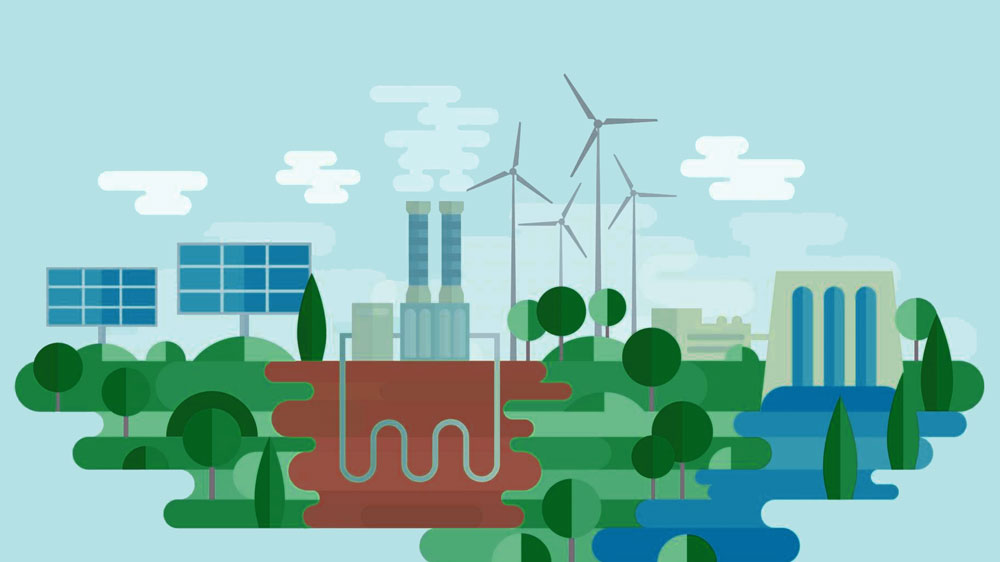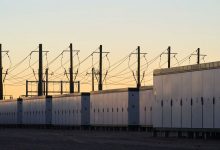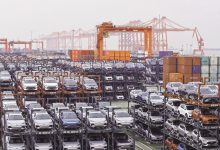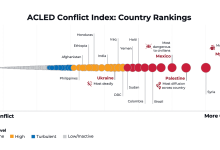Impact of SARS-CoV-2 coronavirus Crisis on the Energy Sector
Actions and Measures Proposed by RNC-WEC
The Word Energy Council (WEC) has prepared a study, in which Romania was also a participant, on the long-term impact especially on the energy sector and post-pandemic prospects generated by the SARS-CoV-2 coronavirus. This allows identifying the future directions of action, based on the evaluations of experts in the field from around the world.
Thus, a Working Group was created on ‘Assessing the impact of the crisis generated by SARS-CoV-2 coronavirus in the energy sector in Romania and establishing mitigating measures’ through a two-step approach:
The Short- and Medium-Term Action Plan (SMT)
Within this Short- and Medium-Term Action Plan, the proposals of RNC-WEC members were collected and transposed into concrete actions, which will be sent to authorities and the relevant stakeholders, so that the impact of the current situation generated by the SARS-CoV-2 coronavirus crisis is mitigated. The actions and the plan will be correlated with the actions carried out in other organizations that carry out similar actions. New legislative proposals or amendments of the existing legislation (primary and secondary) have been considered, to diminish the impact of the state of emergency and pandemic caused by SARS-CoV-2 coronavirus on the Romanian economy and the energy sector in particular.
A. Policies to offset losses caused by the crisis:
- Provision of funds for joint investments, for sanitary materials and equipment in pandemic situations – partial financing from the state;
- Provision of funds to cover expenses with the affected labour force (protection of qualified personnel operating critical infrastructures) – (legislative amendment);
- Alignment of measures imposed by local/county authorities with the measures and intentions of central authorities expressed under the Military Ordinances (intervention teams of the distribution companies, rights of access etc.) for all utilities;
- Applying the provisions of the legal acts in force, regarding the postponement of the payment of utility bills, only to SMEs that are in difficulty due to the adopted measures;
- Ensuring a framework for recovering the historical losses registered by SLRs by applying regulated prices and tariffs;
B. Amendment of the primary and secondary legislation:
- Applying the Regulation (EU) 2019/943 and transposing the Directive (EU) 2019/944, by amending the primary and secondary legislation (Regulation 943 is in force and Directive 944 has an implementation deadline: December 31, 2020);
- Clarifying the definition of the vulnerable consumer and developing the functioning mechanism of the aid scheme for it;
- Starting the decarbonization plan for electricity producers based on fossil fuels;
- Approving and speeding up the start of the NECP plan, with all the comments resulting from the public debate and recommendations of the European Commission;
- Adoption of a procedure (by Ministerial Order) for the extension of expired or expiring certificates of Energy Managers and SPSE, respectively expired or expiring authorizations of Energy Auditors and for ensuring the continuity of issuing new authorizations/certificates;
- Amending the ANRE Order 61/2020 regarding the separate operation of the energy storage facilities with the dispatchable units. This would stimulate investments in storage facilities;
C. New primary and secondary legislative provisions:
- Establishment by GEO of the obligation of the system operator to purchase capacity reserves from coal-fired energy producers for a period of 6 months or until the end of the year for NPS safety (there are drought warnings, imported energy is volatile, and renewable energy will not be available at any time);
- Establishment by GEO of the obligation to purchase a minimum electricity production from coal-fired electricity producers (E.g.: 500 MW) for NPS safety (there are drought warnings, imported energy is volatile, and renewable energy will not be available);
- Introduction of carbon tax for energy imported from non-EU countries – the measure is provided for in the Green Deal with a deadline from the European Commission to present a proposal in 2021 (MT).
Long-term (LT) program of measures
A. Legislative amendments, allowing to boost investment in the energy sector and implementing strategic projects:
- Accelerating/supporting the implementation of investment and modernization programs for all production, transmission and distribution operators, with state or private capital by amending the Public Procurement Law in order to open the domestic market for engineering, manufacturing, construction, assembly companies in Romania;
- Amending/rewriting the Energy Law 123/2012 in order to adapt to the new market conditions, transpose the current European legislation;
- Clarifying the possibility of using and introducing PPA-type bilateral contracts and the mechanism of contracts for difference (CfD);
- Using the window of opportunity for coal-fired producers determined by the reduction of the price of emission allowances and a greater flexibility of the European Commission regarding the acceptance of investments for ‘greening production’;
- Clarifying the royalty and tax policy and reviewing the primary legislation regarding natural gas, applicable for both onshore and offshore;
- Clarifying the situation of the green certificates market and setting new support schemes for the production of electricity from renewable sources, respectively for the production of electricity by cogeneration;
B. New legislative provisions, allowing to boost investment in the energy sector and implementing strategic projects:
- Increasing investments in transmission and distribution networks by keeping by ANRE a return (RAB) that stimulates Network Operators to make the necessary investments, focusing on smart grid and improving the quality of services offered to consumers, as well as through fiscal and legislative measures supporting a reduced cost of the invested capital, given the mutual benefits for operators and consumers;
- Drafting the legislative framework allowing the development of the energy storage infrastructure;
- Creating the secondary regulatory framework on the extension of the network operators’ role, as system operator for the situation of connecting renewable sources to the distribution network, as well as clarifying the authorization of alternative transport;
C. Schemes and solutions to finance the activity and investment programs/strategic projects of NPS:
The following have been considered:
- using the amounts allocated for Romania following the issuance of Eurobonds launched by the ECB;
- using the amounts allocated by the EU Commission within the EUR 100 billion package provided through the SURE program;
- capitalizing on the amounts redistributed from the European Cohesion Fund, the European Fund for Regional Development, as well as the European Social Fund;
- using new financing schemes from the funds allocated to Romania within NECP;
- reprioritization of the amounts from the current funds and budgetary allocations;
- new schemes for subsidizing, compensating and attracting investments and investors through primary and secondary legislative changes with priority for strategic areas and with influence on BS etc.
- Financing the National Plan for Research-Development and Innovation 2015-2020 (NPRDI III), in order to avoid the loss of European funding;
- Reassessing the potential of Romanian consulting, engineering, manufacturing, construction and assembly companies. Reconsideration of the conditions for involving Romanian companies in the construction, operation and maintenance of the NPS. Reconsideration based on Energy Security criteria and risk analysis of the Romanian engineering potential;
D. Investment projects/strategic projects for the energy sector in Romania
- Supporting the refurbishment project of U1 Cernavoda, in order to extend the lifespan by 30 years;
- Launching the investment project Units 3+4 Cernavoda;
- Increased investments in the digitization of the sector, as the crisis has shown that there is a need for additional investments in this field (smart metering, billing, SCADA systems, fully automated stations etc.). In addition to the efficiency advantages thus introduced, digitization allows not only remote work, but also staff protection;
- Implementation, by ensuring the legal and investment framework, of a national program for the development and expansion of natural gas networks, financed by the state budget and/or European financing (e.g. bonds and low interest loans) carried out through transmission and distribution operators and through Administrative Territorial Units (ATUs). Also, investment program to upgrade electricity and thermal energy networks;
- Financing the second stage of the project ‘Preparation activities for the realization of the ALFRED research infrastructure in Romania (PRO ALFRED)’, within the National Plan for Research-Development and Innovation 2015-2020 (NPRDI III);
- Financing the ALFRED Project – Stage I, ‘ATHENA support research infrastructure (pool facility for experiments and thermo-hydraulic tests) and Chem, Lab (laboratory for lead chemistry)’;
- Starting Black Sea gas exploitation and Organizing the 11th Licensing Round for new petroleum blocks.
Information from WEC studies on business impact, future forecasts of post-pandemic processes and scenarios developed by WEC, based on questionnaires completed by experts from around the world, were used to develop the aforementioned study.
Given these things, RNC-WEC has acted and will continue to act in four stages, as follows:
Stage 1
Collecting the opinions of the collective members of RNC-WEC in order to evaluate the economic impact of the crisis generated by the SARS-CoV-2 coronavirus on the Romanian economy and, especially, on the energy sector and business activities of the association members – in the two approaches: SMT and LT – post pandemic.
Stage 2
Preparing the Action Plan on SMT, considering the results of the stage of collecting the members’ opinions, regarding the evaluation of the economic impact of the crisis generated by the SARS-CoV-2 coronavirus on the Romanian economy and the business activities of the association members.
Stage 3
Preparing the Long-Term (LT) Program of Measures, considering the results of the stage of collecting the members’ opinions, regarding the evaluation of the economic impact of the crisis generated by the SARS-CoV-2 coronavirus on the Romanian economy and the business activities of the association members.
Stage 4
Completing and periodically updating the Plan and the Program, as new elements are identified or with the information received from RNC-WEC members.
Finally, the working group will submit to the authorities the SMT Action Plan and the LT Program of Measures, in order to take into account and promote legislative actions and regulations.
About RNC-WEC
The Romanian National Committee of World Energy Council (RNC-WEC), an organization with activity in the energy sector in Romania, has the mission of promoting Romania’s sustainable energy development and the efficient use of primary energy resources in all forms. RNC-WEC currently has over 100 collective members (the most important regulatory authorities, institutions, institutes in the field of energy, the most important operators on the electricity market, producers, transmission operators, distributors, suppliers, energy users; associations and professional societies, national committees and centres, academies and universities) and about 270 individual members, representative specialists in the field of energy, from the research, industry and academic sectors. The total turnover of the members amounts to over RON 70 billion, and the total number of employees is almost 75,000.
Within RNC-WEC activities the connection with the members of the association represents a priority. The collection and correlation of the opinions and points of view of the members in order to constitute a unique voice addressed to the authorities regarding the major problems and with high economic impact is permanent or whenever events with major impact on the society appear.







